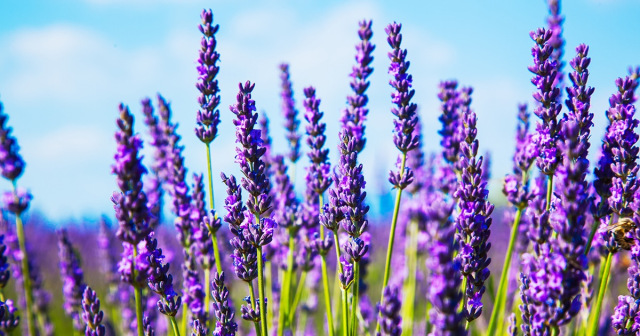
- Headache medicine Apply a little oil to each temple when you have a headache and massage it in for remarkable relief.
- Tummy tamer German doctors often recommended lavender tea as a digestive aid. The oils relax the smooth muscles of the digestive tract and soothe after-meal cramps in the stomach and intestine. Lavender also helps to ease intestinal wind. To make an infusion, steep a heaped teaspoon of lavender flowers in a cup of boiling water for 10 minutes and strain.
- Infection fighter The tannins in lavender kill bacteria and help to prevent minor cuts and grazes from becoming infected. Soak a clean cloth in a lavender fusion and apply the compress to the wound.
- Ear soother The same chemical compound in lavender that fights skin infections will knock out the itch and irritation of swimmer’s ear.
- Pain reliever Lavender oil has minor painkilling properties. It appears to reduce the transmission of nerve impulses that carry pain signals. Mix a few drops the oil into a tablespoon of carrier oil and rub it in. Lavender also relieves itching, thanks to its anti-inflammatory action. It’s the perfect remedy for insect bites and stings.
How lavender may, one day, combat cancer
Cancer specialists have observed that a class of chemical compounds in lavender called monoterpenes appear to inhibit the development of cancerous cells and may help to prevent them from multiplying. Early laboratory research suggests that monoterpenes such as perillyl alcohol may inhibit soft-tissue cancers, such as those in the liver, breast and prostate gland. These compounds have even been shown to slow down the growth of colon and liver tumours.
It is too early to say for definite that lavender has beneficial effects on cancer. But early results are so promising that the essential oils are being tested in clinical studies for possible anti-cancer potential.